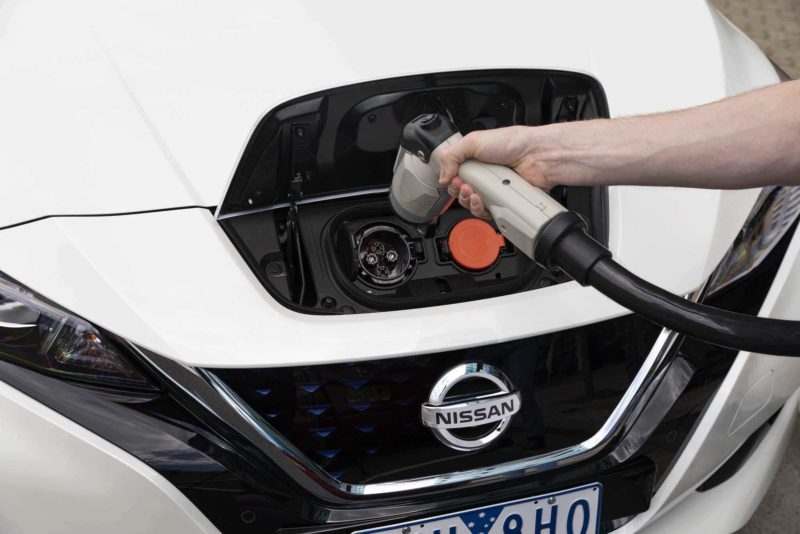The astonishing news that Victoria will join South Australia in introducing an electric vehicle tax has been met with strong opposition from the country’s peak automotive industry body, the Federal Chamber of Automotive Industries (FCAI), which says it will kill off the fledgling EV industry.
If you missed the bomb that was dropped on electric vehicle drivers on Saturday by Victorian treasurer Tim Pallas that the state would charge electric vehicle owners 2.5 cents per kilometre, and plug-in hybrid owners 2 cents per kilometre from July 1, 2021, you can read about it here, and here.
In response to the state moves to tax electric vehicles, which are unique on a global scale and at odds with moves in the US, Europe and UK moves to ban petrol and diesel vehicles, FCAI boss Tony Weber said:
“Australian state governments want to kill the technology at its infancy.
“Once again, we have a state government in Australia trying to destroy the path to a greener and cleaner motor vehicle fleet for this and future generations.”
Weber’s comments come after 31 months decline in petrol and diesel vehicle sales in Australia. Australia’s auto industry reported the lowest decreases in sales in October, after seeing a huge further downturn in sales in 2020 due to the pandemic, leading Weber to note in early November that he could see “green shoots” for the industry thanks to electrified vehicles.
But that optimistic outlook has now been dashed, with both Victoria and South Australia saying they will penalise electric vehicles and NSW saying it is thinking about doing the same.
The Victorian tax would mean that electric vehicle drivers pay more to state coffers than combustion cars that use 6 litres of fuel per 100 km pay in fuel excise, which goes to the federal government and is not directly earmarked for roads as claimed by those that argue electric car owners don’t help pay for roads.
A report by the federal government’s own economic modeller, BITRE (the bureau for infrastructure, transport and regional development and communications), says that a 5 per cent running costs of an EV (which this new tax represents) will reduce EV sales by 2.5 per cent a year.
The new tax also ignores the findings of the Ernst and Young report released in September that in fact, each electric vehicle that replaces a combustion vehicle can deliver a net benefit of $8,763 per vehicle to the economy over a ten-year life span, because the health and environmental benefits greatly outweigh any loss in fuel excise and GST revenue.
Weber was damming in his comments: “Don’t worry about health outcomes, don’t concern yourself about the environment – short-term revenue collection comes first,” he said.
“Other countries bend over backwards to increase the use of EVs and other low emission vehicles, because they recognise the benefits.
Other industry stakeholders such as the Australian Automobile Association (AAA), and the Australian Electric Vehicle Association AEVA) say that a road usage fee is inevitable for all cars at some point, but that these measures are premature and badly thought out.
AAA Managing Director, Michael Bradley, said in a statement that the Federal Government “must step in and ensure tax changes are nationally consistent, equitable, and progressed in a manner that does not disincentivise technological transition.”
However Bradley also congratulated the Victorian and South Australian governments on “taking a position of leadership and for taking on a tax reform that has for too long sat in the too-hard basket.”
President of AEVA, Chris Nash, told The Driven that the introduction of road user fees for electric vehicles in a country where there are only 20,000 or so on the road is backwards.
“Why make it EV-only when you haven’t got the uptake yet?” he said. “Now it’s more encouraging to buy a diesel car than to buy an electric vehicle. That’s how backwards are we here.”
He notes that incentives to buy electric vehicles in other countries have been successful in accelerating adoption.
Weber agrees. While the question of how to fund roads needs to be addressed, it is a long term issue that must be done fairly, across the entire automotive market, he says.
“Such a transition needs to be undertaken in a holistic and nationwide manner, recognising the importance of EVs and other low emission vehicles. Let’s not kill EVs in their infancy.”
Note: The Driven will be hosting a free webinar this coming Wednesday on charging options at home and on the road. To find out more and to register, please click here.

Bridie Schmidt is associate editor for The Driven, sister site of Renew Economy. She has been writing about electric vehicles since 2018, and has a keen interest in the role that zero-emissions transport has to play in sustainability. She has participated in podcasts such as Download This Show with Marc Fennell and Shirtloads of Science with Karl Kruszelnicki and is co-organiser of the Northern Rivers Electric Vehicle Forum. Bridie also owns a Tesla Model Y and has it available for hire on evee.com.au.

